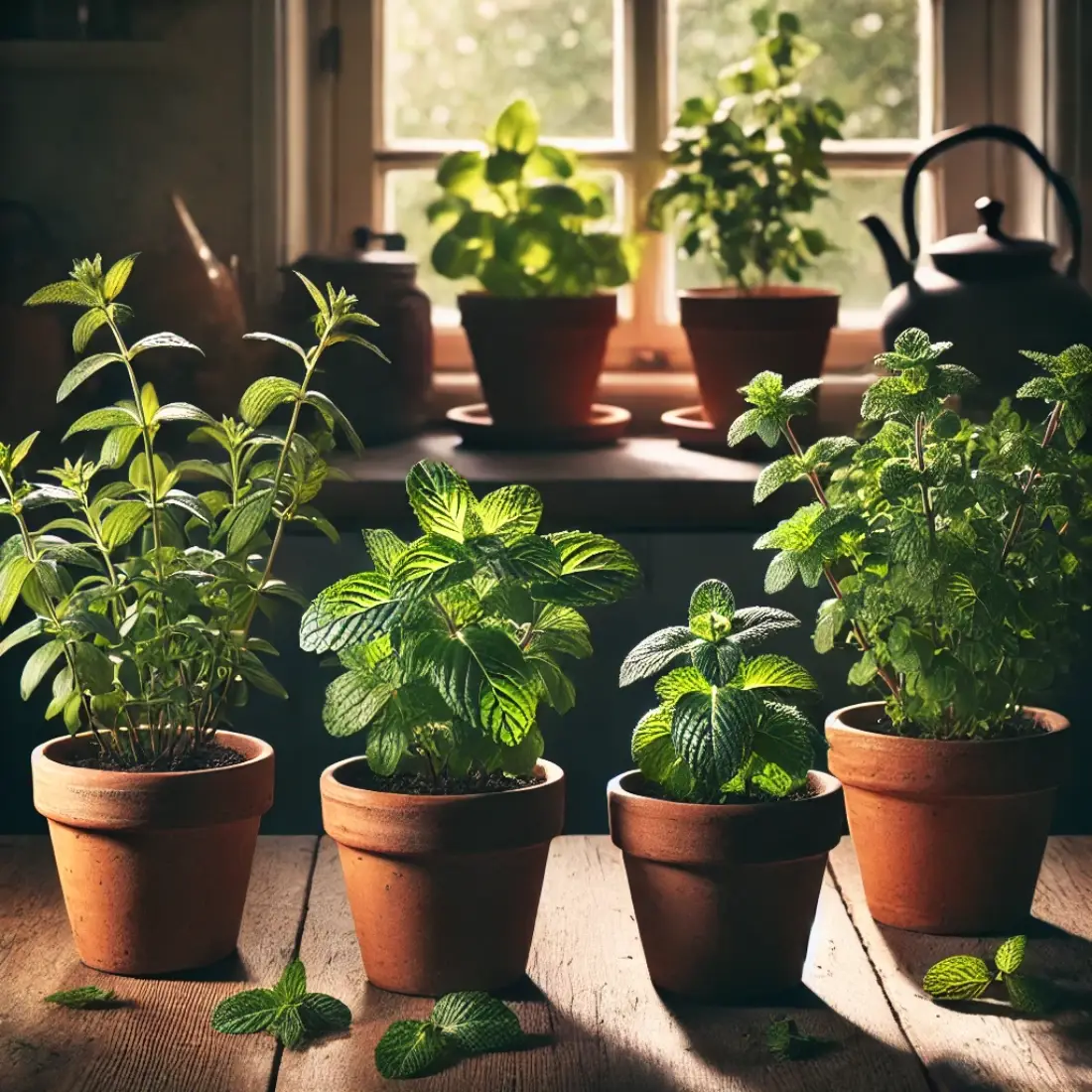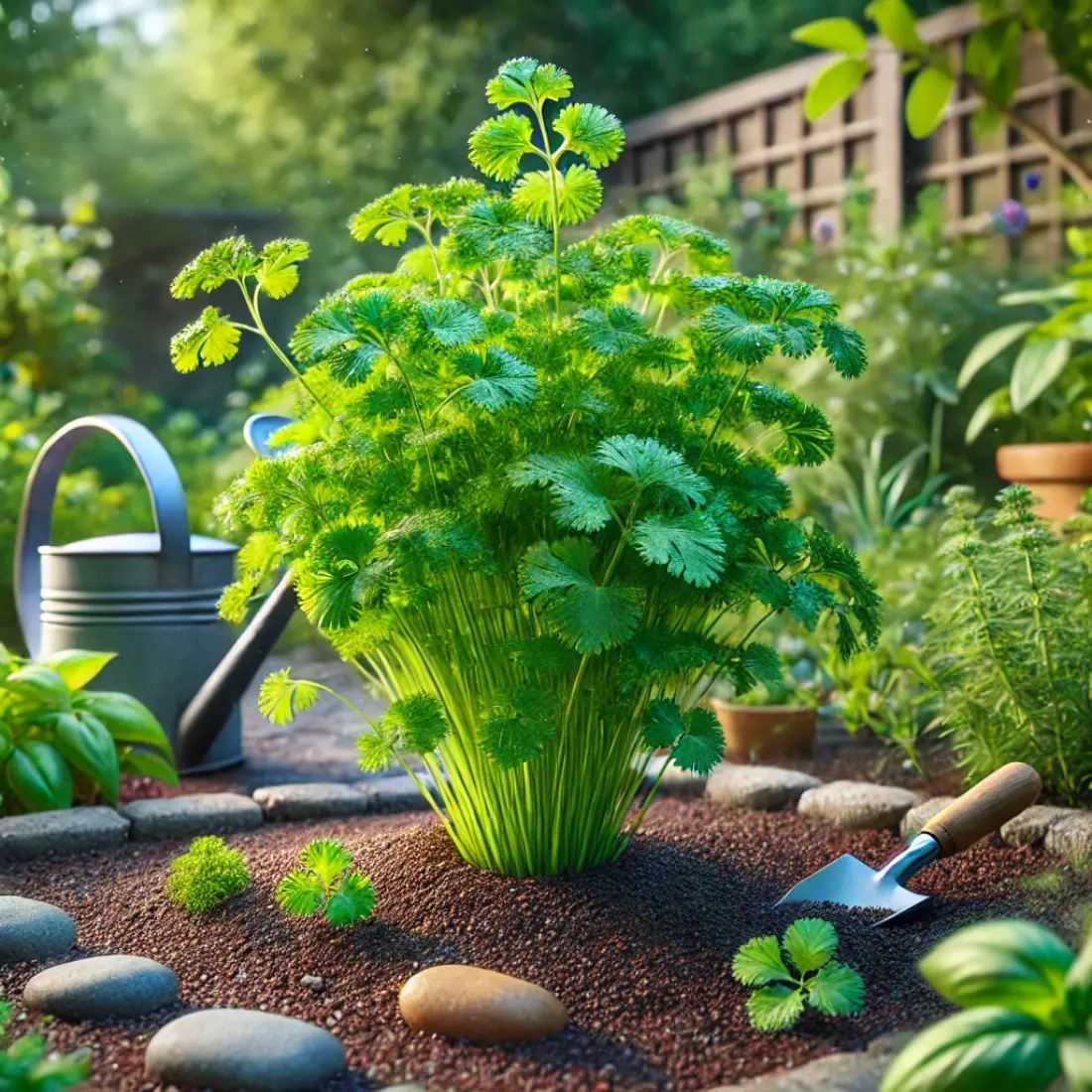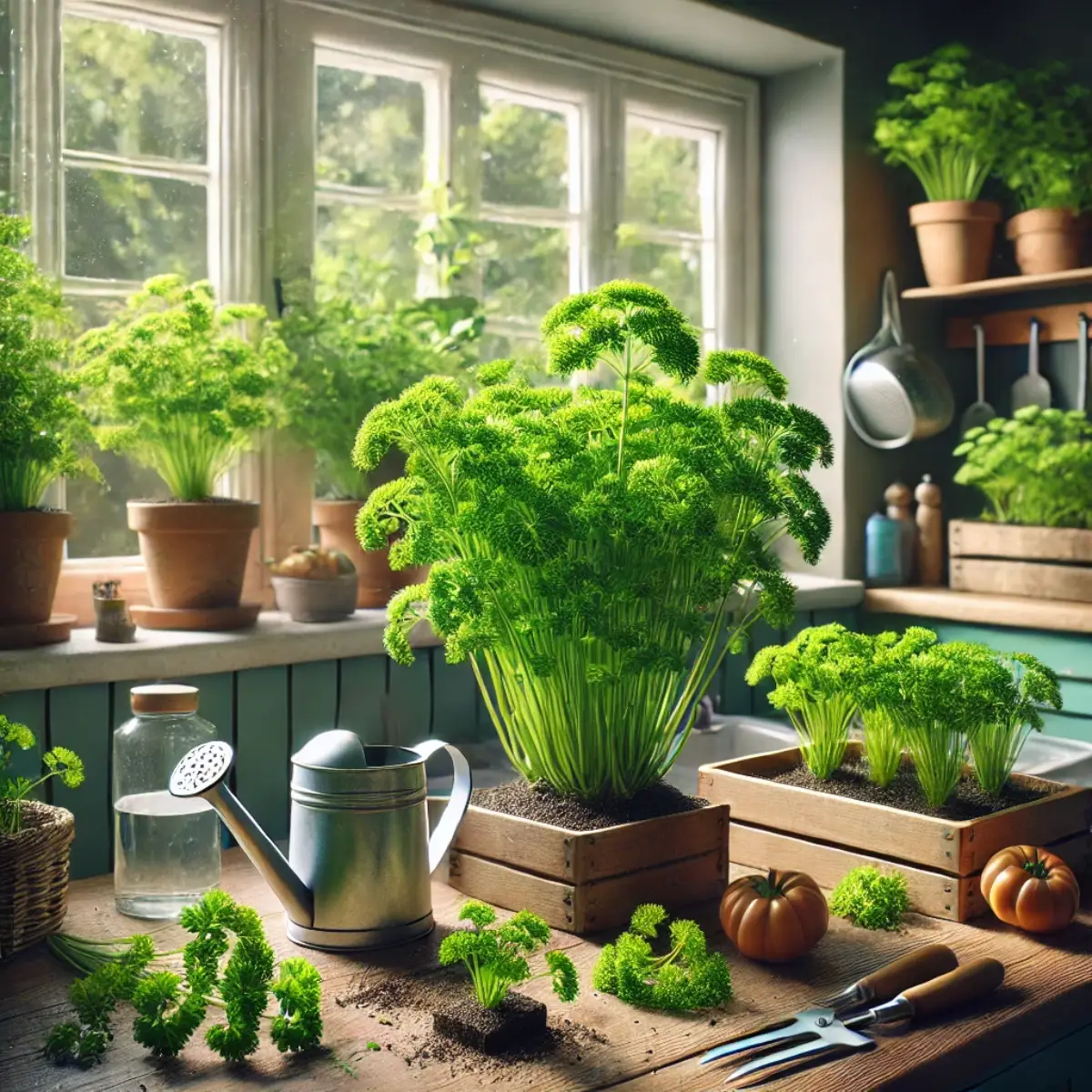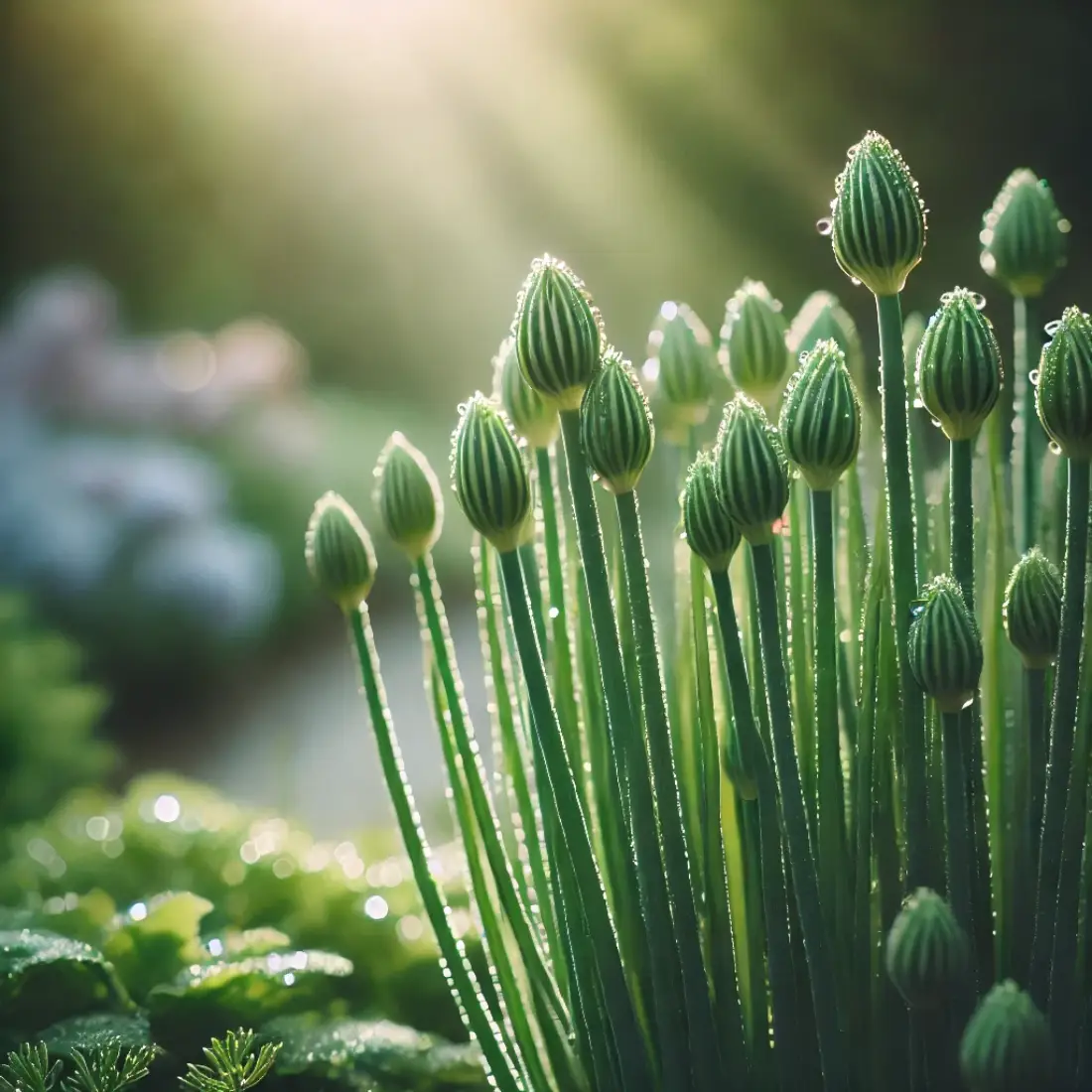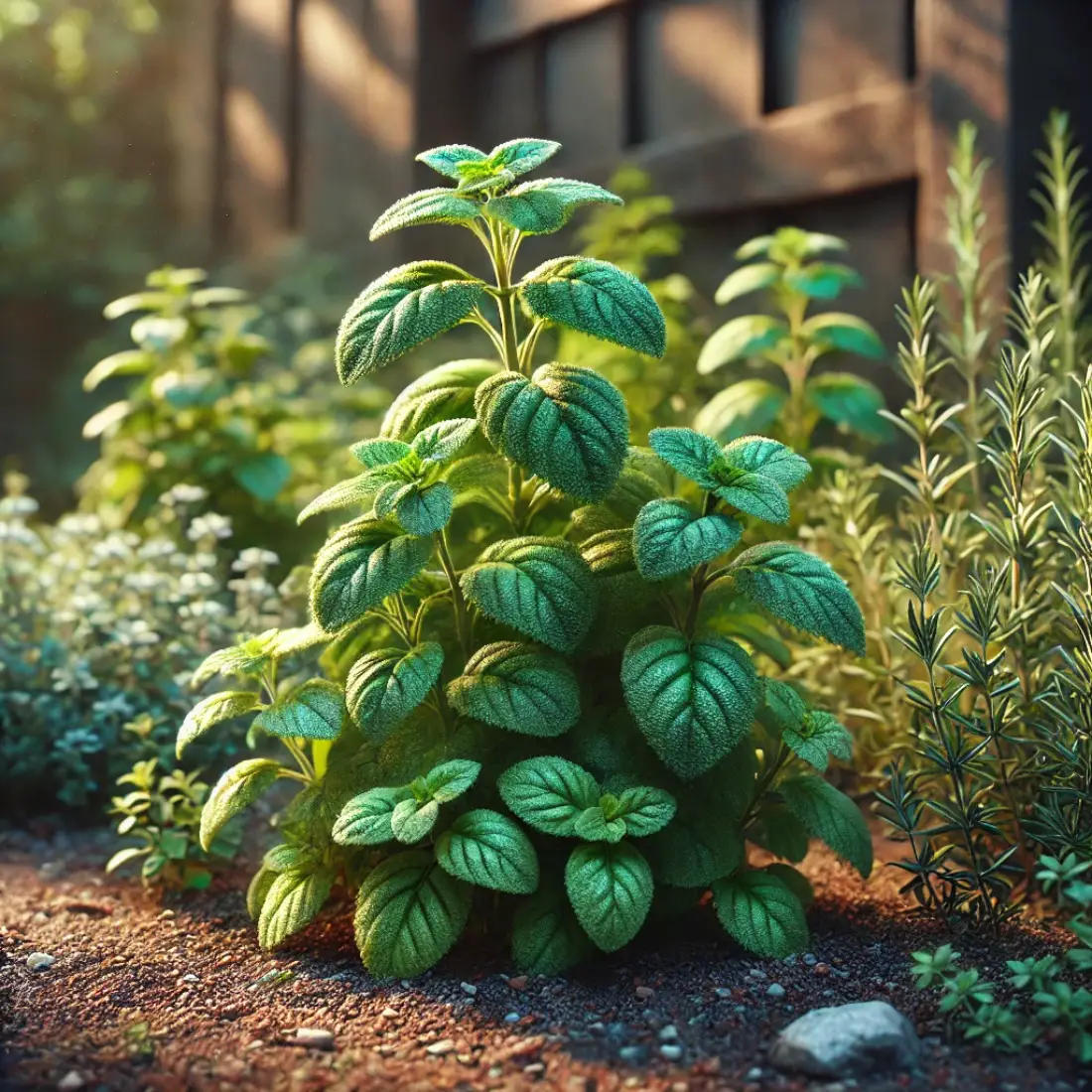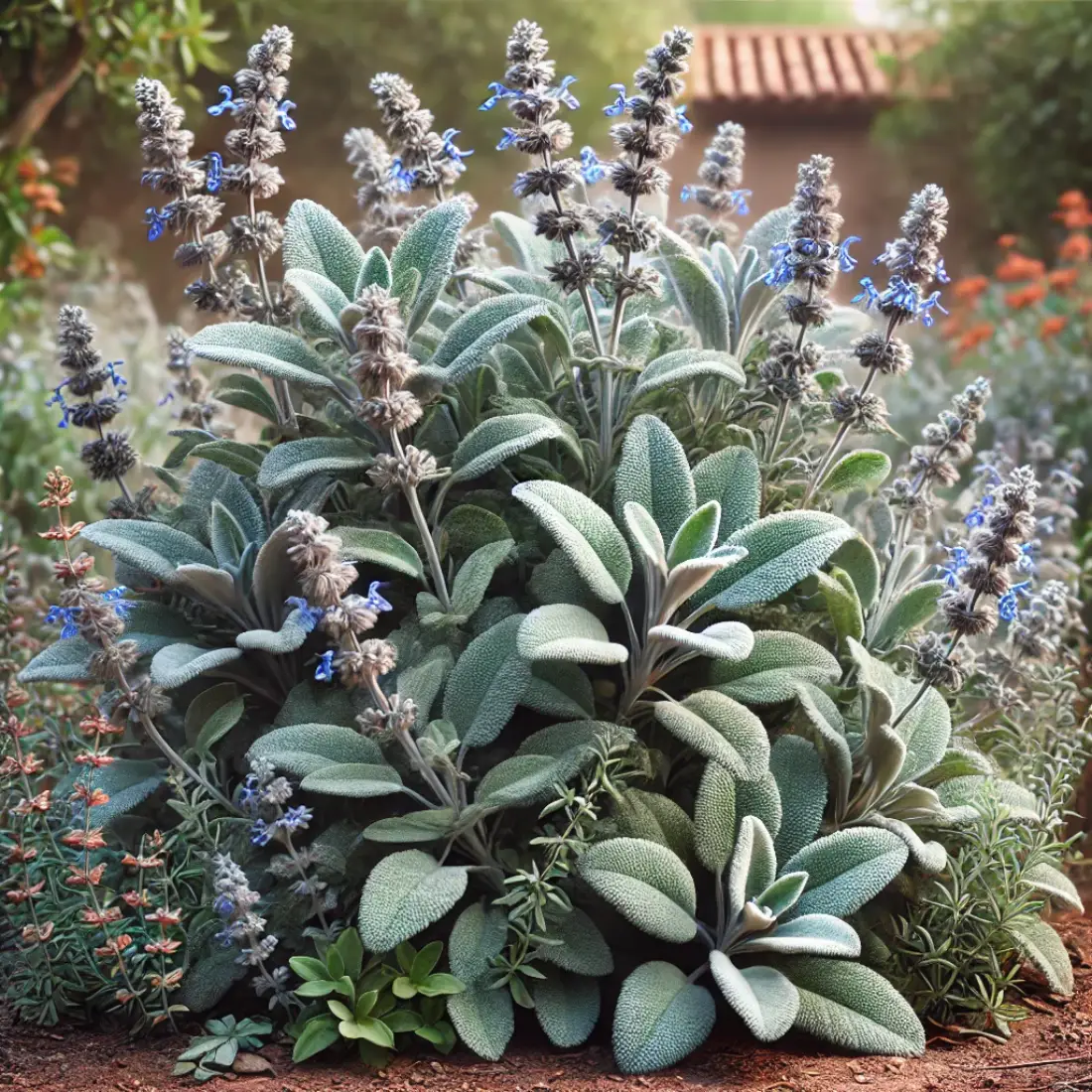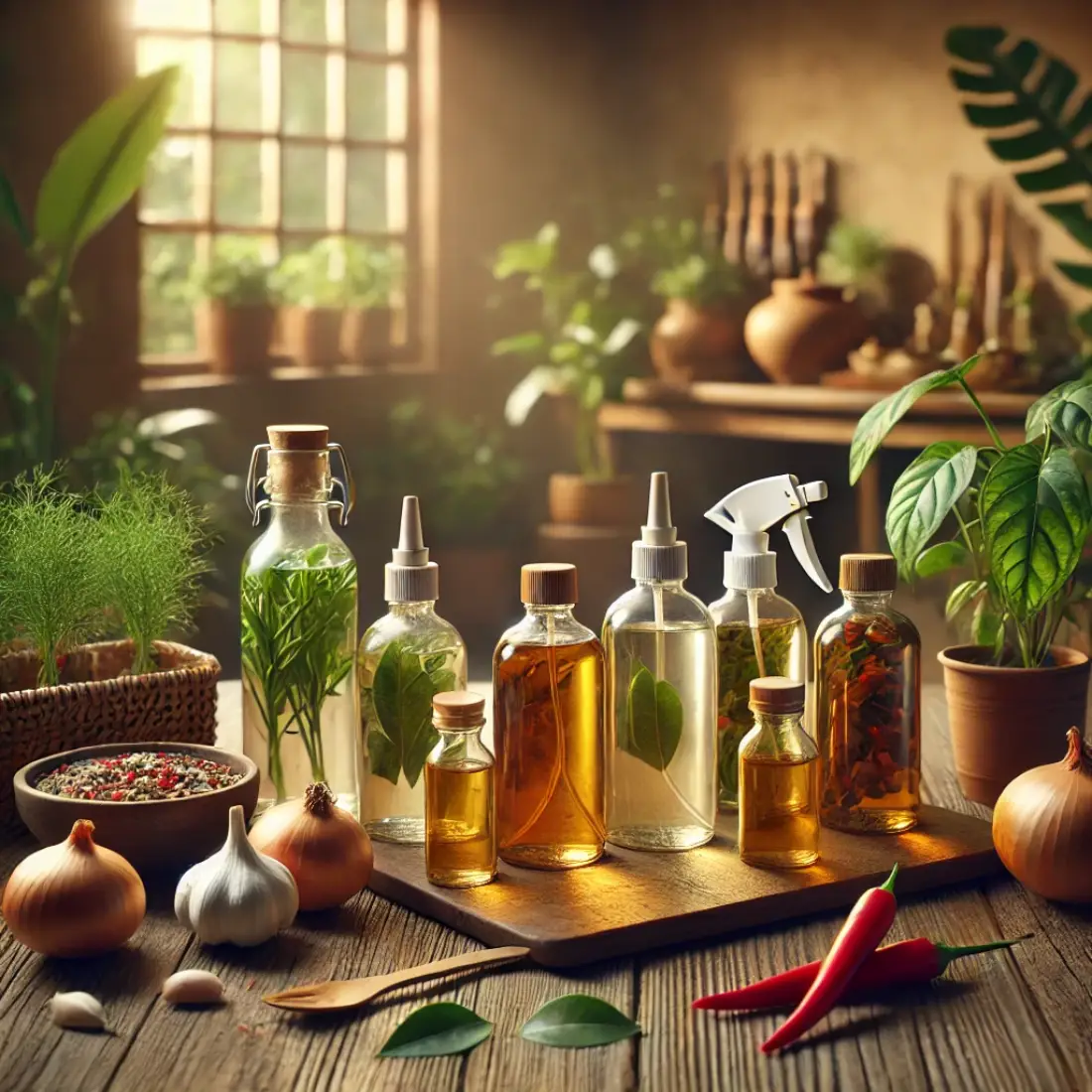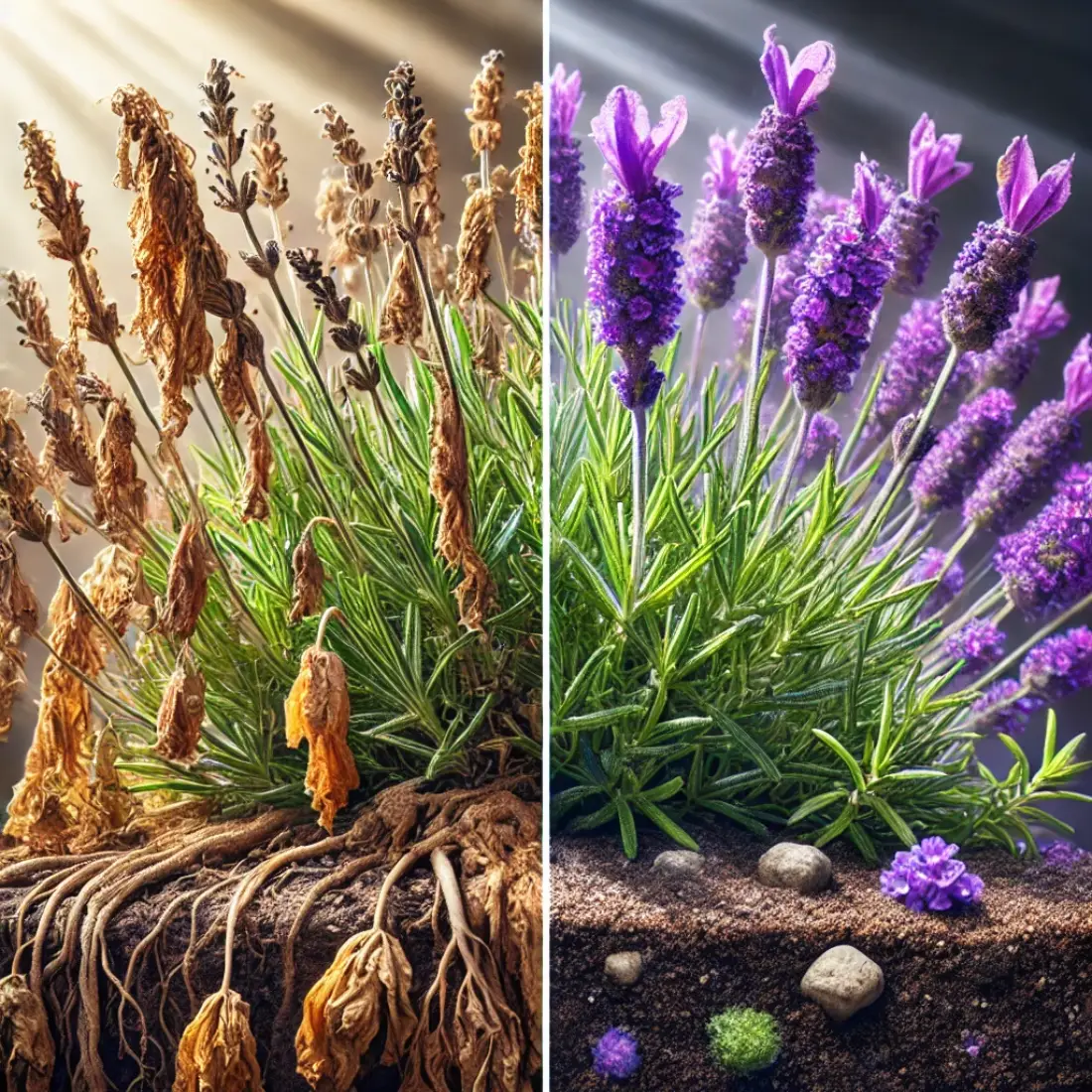Growing herbs indoors isn’t just a testament to your green thumb; it’s a practical way to bring fresh, organic ingredients right into your kitchen. Indoor herb gardening not only provides easy access to culinary essentials but also adds greenery to your home.
Top Herbs to Grow Indoors for Organic Indoor Gardening
When starting your indoor herb garden, some herbs stand out for their versatility, ease of growth, and rich flavors. Popular herbs like basil, mint, cilantro, and parsley are must-haves in any kitchen garden due to their fast growth and diverse uses.
- Basil, mint, cilantro, and parsley are the top herbs to grow indoors for beginners.
- Organic gardening techniques such as using natural fertilizers and organic pest control ensure healthy plants.
- Each herb not only enhances your dishes but also offers medicinal benefits.
Choosing the Best Herbs for Your Indoor Garden
The success of your indoor herb garden depends on picking the right plants based on your available space, light conditions, and personal cooking preferences. Whether you crave the fresh taste of mint in beverages or the aromatic touch of basil in pasta dishes, every herb you grow will enrich both your cooking and indoor environment.
10 Most Popular Indoor Herbs to Grow
1. Basil: The Aromatic Powerhouse
Basil is one of the most popular herbs for indoor gardens due to its rich flavor and ease of care. It thrives in warm, sunny spots and needs regular watering to keep the soil moist. Beyond its culinary use in Italian dishes, basil is known for its anti-inflammatory properties.
- Ideal for: Italian and Mediterranean dishes
- Health Benefits: Anti-inflammatory properties
2. Mint: The Refreshing Companion
Mint grows vigorously, making it an excellent choice for beginners. It prefers indirect sunlight and requires moist soil. Plant mint in a separate container to prevent it from overtaking other herbs. Its fresh flavor is ideal for teas and desserts, and it also aids in digestion.
- Ideal for: Teas, cocktails, and desserts
- Health Benefits: Digestive aid
3. Cilantro: The Flavorful Herb
Cilantro (also known as coriander) is loved or hated for its distinct taste. It requires ample light and regular watering. Commonly used in salsa, guacamole, and various Asian dishes, cilantro also has detoxifying properties.
- Ideal for: Salsa, guacamole, Asian cuisine
- Health Benefits: Detoxification
4. Parsley: More Than Just a Garnish
Parsley is a hardy herb that enjoys full sunlight and well-drained soil. It goes beyond garnishing by enhancing soups, stews, and salads. Parsley is rich in vitamins A and C, making it a powerful immune booster.
- Ideal for: Soups, salads, and stews
- Health Benefits: Rich in vitamins A and C
5. Chives: The Mild Flavor Enhancer
Chives prefer bright light and well-drained soil. With a subtle onion flavor, they are perfect for adding a mild zest to dishes. Chives also contain antioxidants that promote heart health.
- Ideal for: Soups, salads, eggs
- Health Benefits: Antioxidant-rich
6. Thyme: The Versatile Herb
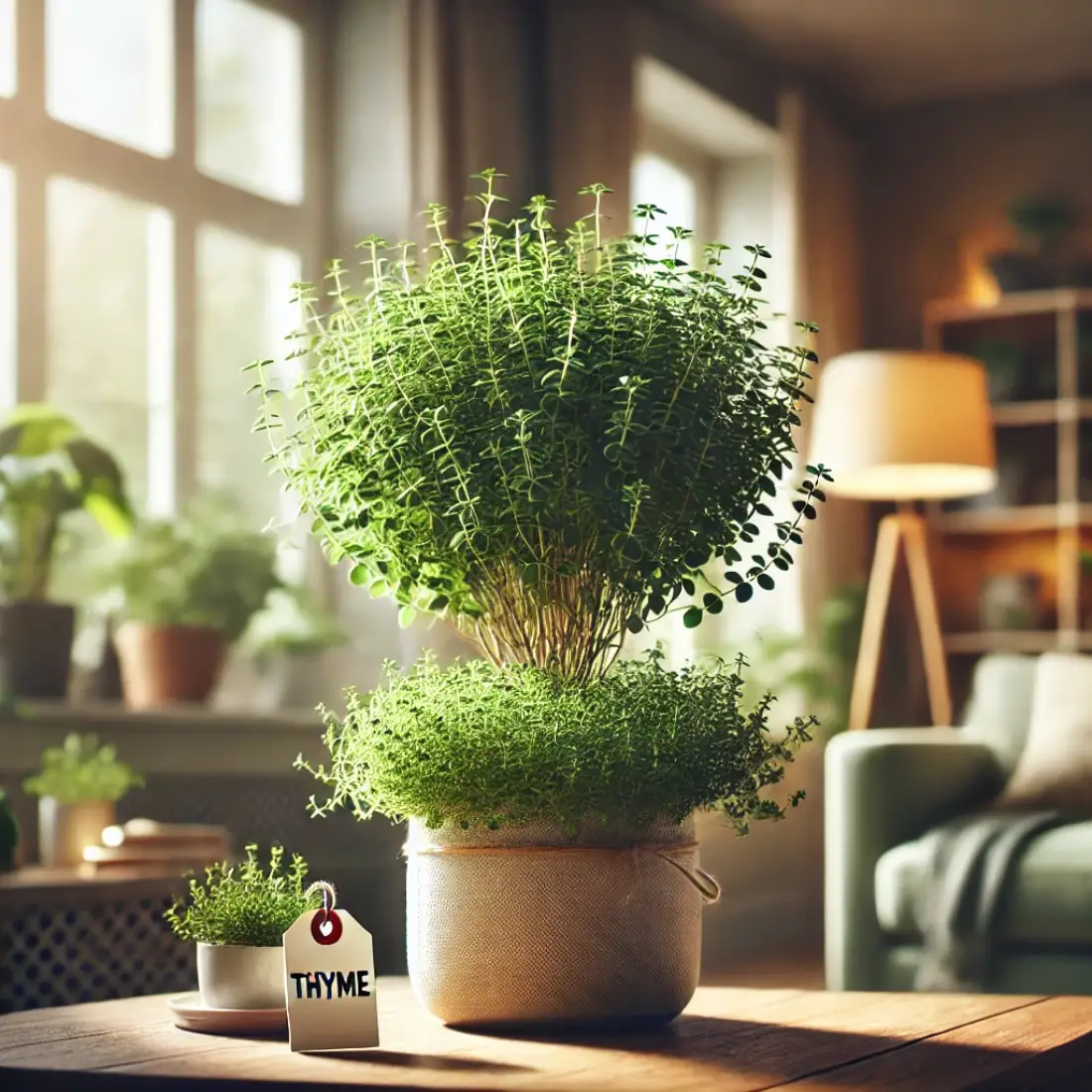
Thyme is easy to grow indoors as it requires minimal water and plenty of sunlight. Known for enhancing meats and soups, thyme is also prized for its antiseptic properties.
- Ideal for: Meats, soups, sauces
- Health Benefits: Antiseptic properties
7. Oregano: The Robust Herb
Oregano grows well with moderate watering and sunlight. It is a favorite in Italian and Mediterranean dishes, and its leaves are packed with antioxidants and antimicrobial properties.
- Ideal for: Italian, Greek, Mexican cuisine
- Health Benefits: Antioxidant and antimicrobial
8. Rosemary: The Fragrant Herb
Rosemary loves bright light and occasional watering. Its aromatic leaves are perfect for flavoring meats and bread. Rosemary is also known for improving memory and promoting hair growth.
- Ideal for: Meats, bread
- Health Benefits: Memory improvement, hair growth
9. Dill: The Fragrant Addition
Dill thrives in sunlight and needs regular watering. It’s perfect for adding flavor to fish dishes and salads and is well-known for its digestive benefits.
- Ideal for: Pickling, fish dishes, salads
- Health Benefits: Digestive aid
10. Sage: The Wise Herb
Sage prefers sandy, well-drained soil and moderate sunlight. Its earthy flavor pairs well with poultry and stuffing, and sage boasts anti-inflammatory and antioxidant properties.
- Ideal for: Poultry, stuffing
Health Benefits: Anti-inflammatory, antioxidant
FAQ for Most Used Herbs
How often should I water my indoor herbs?
Water requirements vary by herb, but a general rule is to keep the soil moist, not waterlogged. Check the top inch of soil; if it’s dry, it’s time to water.
Can I use tap water to water my indoor herbs?
Yes, you can use tap water, but it’s advisable to let it sit out for 24 hours before using it to water plants. This allows chlorine and other chemicals to evaporate, making it safer for sensitive herbs.
What are the best organic fertilizers for herbs?
Compost, fish emulsion, and seaweed extracts are excellent organic options that provide a balanced nutrient profile without chemicals.
Read more about how to fertilize your plants
Can I grow these herbs in limited space?
Absolutely! Many herbs thrive in containers, making them perfect for small spaces or window sills. Just ensure they receive adequate light and care.
What is the best way to start herbs indoors?
Starting herbs indoors is best done using seeds or cuttings. Use quality organic potting mix in containers with good drainage. Place them in a location that receives at least six hours of sunlight daily, or use grow lights to supplement light conditions.
How do I control pests in my indoor herb garden organically?
Prevent pests by ensuring good air circulation and not overwatering. For infestations, use organic solutions like neem oil, insecticidal soaps, or make a homemade spray with water and mild dish soap. Introducing beneficial insects, like ladybugs, can help control aphids naturally.




